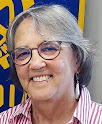AGENDA
8 a.m. Continental breakfast, Bluegrass Ballroom (location for all events)
9:00 Welcome: Al Cross, director, Institute for Rural Journalism and Community Issues, University of Kentucky
9:10 The state of rural newspapers and the rise of ghost newspapers: Zachary Metzger, Northwestern University
The senior researcher and database manager for the State of Local News Project, which is preparing its annual report, will discuss its latest data, including the lack of digital news sites in rural areas; discuss examples of ghost newspapers; and discuss ways that the term can be defined. (To be presented remotely)
9:35 Rural publishers’ and readers’ views of alternate-revenue models: Nick Mathews, University of Missouri
Mathews and two other researchers surveyed publishers and readers of rural newspapers in the Dakotas, Nebraska, Kansas and Oklahoma about their willingness to consider alternative revenue sources for newspapers. He will report on that, with major attention to focus groups conducted with rural publishers.
10:00 Being the guinea pig in an alternate-revenue research experiment: Joey Young, Kansas Publishing Ventures
As part of the above research, the owner of three weekly newspapers in south-central Kansas agreed to test alternate forms of revenue. He will report on the results.
10:25 What rural publishers think about the future: Ross McDuffie, National Trust for Local News
With the help of the Institute for Rural Journalism, the National Trust recently completed an online survey of rural publishers. The Trust’s chief portfolio officer will give the first public report of the results.
10:50 Finding alternative-revenue success at a twice-weekly: David Woronoff, The Pilot, Southern Pines, N.C.
Nationally recognized as an innovative publisher and entrepreneur, David Woronoff will tell the story of the transformation of his twice-weekly newspaper in central North Carolina into a media conglomerate.
11:15 Finding alternative-revenue success at a small daily: Jack Rooney, The Keene Sentinel, Keene, N.H.
The Sentinel, which made a presentation at last year’s Summit, continues to expand its alternate-revenue sources and journalism that build audience and community. The paper’s managing editor for audience development will report on one of New England’s best newspapers has bene doing lately.
11:40 Reviving Gannett ghosts: Jeremy Gulban, CEO, CherryRoad Media
Gulban was a tech entrepreneur who saw an opportunity in the newspaper industry and has become one of its leading publishers in about three years, mainly through purchase of Gannett Co. papers. Now he says Gannett ran them so far into the ground that he is experimenting with ways to revive them.
12:00 LUNCH buffet, with greetings from Dr. Jennifer Greer, dean, University of Kentucky College of Communication and Information
12:30 Rural narratives: Bonita Robertson-Hardy, co-executive director, Aspen Institute Community Strategies Group
Accurate rural narratives, driven partly by high-quality journalism, present an opportunity to help build trust and new relationships across geography. Boosting local media also gives rural and Indigenous people more timely and credible information about their community. Advancement on these fronts can increase understanding and trust among diverse communities and regions, advancing equitable rural prosperity. (To be presented remotely)
12:50 Philanthropy for local news: Duc Luu, Knight Foundation; Richard Young, CivicLex; and Lillian Ruiz, Ci-X Strategies
Philanthropy is an important part of alternative-revenue schemes for local news. This panel has a journalism officer from the leading philanthropic foundation supporting journalism, the head of a local start-up that has tapped philanthropic funding, and a social entrepreneur for information, social impact and civic infrastructure.
1:20 Broader rural news: Tim Marema, Daily Yonder, and Alana Rocha, Inst. For Nonprofit News’ Rural News Network
More attention to rural journalism has spawned national news outlets to cover rural news. The Daily Yonder was founded more than 15 years ago and has assembled a stable of funders and contributors that make it strong; the Rural News Network was founded recently by the Institute for Nonprofit News, a resource hub for more than 425 nonprofit newsrooms dedicated to producing journalism as a public service.
1:50 Solutions journalism: Mary Steurer, Casper Star-Tribune, and Melissa Cassutt, Solutions Journalism Network
The SJN helps local reporters do reporting projects that lead to solutions for local and social problems. A local-government reporter and SJN’s rural-media manager will discuss how to do solutions journalism in rural areas: finding sources, planning coverage and building trust in rural communities.
2:15 Turning readers into correspondents and reporters: Lindsey Young, Kansas Publishing Ventures
Young developed "Earn Your Press Pass,” a program to help newsrooms broaden whom they recruit to and hopefully make it easier to fill positions. The program is being implemented in 18 states.
2:30 A digital start-up succeeds vs. a Gannett-ghost small daily: Lynne Campbell, Community News Brief, Macomb, Ill.
Hoping to do much the same thing in a smaller town: Nicole DeCriscio Bowe, The Owen News, Spencer, Ind. (remotely)
Success with a digital start-up against a Paxton daily: Jennifer P. Brown, Hoptown Chronicle, Hopkinsville, Ky.
Ditto the above, plus a free weekly print edition: Debra Tobin, Logan-Hocking Times, Logan, Ohio (remotely)
3:10 BREAK
3:20 Seeking state policies to help local journalism: Anna Brugmann, Rebuild Local News Coalition
Efforts to change public policy to help sustain local newsrooms have shifted to state legislatures, and bills are actually passing. Anna Brugmann will discuss these and other efforts and how they might be replicated.
3:40 Retreating to Facebook: Laurie Ezzell Brown, The Canadian Record (remotely); Ryan Craig, Todd County Standard
Two of the best rural newspapers in America no longer print, for reasons their publishers will discuss – but the key takeaway from this session will be that their news outlets’ expanded use of Facebook has prevented news deserts.
4:00 Bringing students into communities to report local news: Richard Watts, Center for Community News, University of Vermont; Alan Miller, Denison University, Ohio (both remotely); moderated by Christopher Drew, Louisiana State University
More than 100 higher-education journalism programs are filling gaps in local news coverage. Ttwo of the leading practitioners discuss the phenomenon and the practicalities with Richard Watts, head of a Knight-funded center that tracks them.
4:30 Maintaining and growing print circulation: Patrick Schless, Community Journalism Project, Lewis County Press
This presenter says digital growth isn’t the answer for rural publication, that strengthening community newspapers starts with print first – it is what the staff believe in, what the current subscribers know, and what advertisers understand. His project works with 70 paid rural papers to strengthen print while bridging to a hybrid future.
4:45 Concluding roundtable, moderated by Benjy Hamm, incoming director, Institute for Rural Journalism and Community Issues
Benjy Hamm, who will become director Aug. 16, has held leadership positions for nearly 30 years in news-media organizations including Landmark Media Enterprises, the New York Times Co. and The Associated Press. For the last four years, he has taught journalism at Campbellsville University in Kentucky.
5:30 Cash-bar reception
6:00 Dinner (optional, $50 fee)
SPEAKER BIOGRAPHIES
Jennifer P. Brown is editor and co-founder of Hoptown Chronicle, a nonprofit, digital news outlet in her hometown, Hopkinsville, Ky. She is a former editor and opinion editor of the Kentucky New Era, the local daily where she worked for 30 years. She received Kentucky’s Al Smith Award for public service through community journalism in 2012 and its James Madison Award for service to the First Amendment in 2013. She has a master of fine arts in nonfiction writing from Goucher College.
Laurie Ezzell Brown is owner of The Canadian Record, a national award-winning weekly newspaper in Canadian, Texas, that stopped printing in March after another potential sale fell through, but is continuing to report the news of Hemphill and adjoining counties on Facebook. Brown and her parents won the 2007 Tom and Pat Gish Award for courage, integrity and tenacity in rural journalism, presented by the Institute for Rural Journalism and Community Issues, which cited her investigative reporting and editorial leadership.
Anna Brugmann is the director of policy at the Rebuild Local News Coalition, which is seeking ways to develop more financial support for local newsrooms. Before joining Rebuild Local News, Brugmann was a local-government, schools and nonprofits reporter at the Sarasota Observer in Florida, covered heath care for the Columbia Daily Tribune in Missouri, and taught English as a Peace Corps Volunteer in Albania. She's also researched audience trust and taught media literacy to high-school students.Lynne Campbell is publisher of the Community News Brief, a thrice-weekly publication in Macomb, Illinois, where she worked for a locally owned paper that was bought by GateHouse Media. She eventually became regional publisher of 26 Illinois papers, but disliked the direction of the company, and bought her own paper and started one. In 2017 she started the Community News Brief, which employs several former employees of the former Gannett/GateHouse paper as correspondents. The paper, once free-circulation, is now for subscribers two days a week and has a free midweek edition.
Melissa Cassutt is the rural-media manager for the Solutions Journalism Network. She works with rural-serving news outlets across the country, building new relationships and supporting solutions-journalism practice. She joined SJN in 2021 after working as a journalist and editor at publications across the Mountain West, most recently in Jackson, Wyoming, where she is based. She was named the 2016 Wyoming Press Association’s Young Journalist of the Year and received the Wyoming Woman of Influence Award in Media and Communications in 2019.
Ryan Craig is the student media adviser at the University of Kentucky, and publisher of the Todd County Standard in Elkton, Ky., which ceased printing at the end of 2022 but remains active on Facebook. The Standard was judged the best small weekly newspaper in Kentucky for 11 years out of 12, winning the General Excellence award from the Kentucky Press Association. Craig was KPA president, and he and his late uncle Larry Craig won the Al Smith Award for public service through community journalism by Kentuckians from the Institute for Rural Journalism and the Bluegrass Chapter of the Society of Professional Journalists.
Al Cross is director of the Institute for Rural Journalism and Community Issues at the University of Kentucky and extension professor in UK's School of Journalism and Media. In that job, he is editor and publisher of The Rural Blog and Kentucky Health News. He was a weekly newspaper editor and manager before working for 26 years as a reporter for the Louisville Courier-Journal, the last 15½ as chief political writer. In 2001-02 he was president of the Society of Professional Journalists, which awarded him its Wells Key, the highest award for service to the organization.
Christopher Drew leads the experential-journalism curriculum, including the statehouse bureau, at Louisiana State University, where he is the Fred Jones Greer Jr. endowed chair in journalism. He was an investigative reporter for The New York Times for 22 years, and before that reported for The Wall Street Journal, the Chicago Tribune and the New Orleans Times-Picayune. He received two awards for national reporting from the White House Correspondents’ Association and won a George Polk Award with other Times journalists and is the author of Blind Man’s Bluff, a best-seller about Cold War submarine spying, and co-author with ocean explorer Robert Ballard of Into the Deep: A Memoir From the Man Who Found Titanic.
 Nick Mathews is assistant professor of journalism
at the University of Missouri. He has been sports editor of the Houston Chronicle and regional
editor for Berkshire Hathaway in Virginia. His
research interests focus on local news, rural media
environments, rural broadband, news audiences and social media and its role in
journalism and society. His research has appeared in top journals. He is co-author of a forthcoming book with
Teri Finneman and Patrick Ferrucci, Reviving Rural News:
Transforming the Business Model of Community Journalism in the U.S. and Beyond, and is author of
another book under consideration, about living
with the loss of local news.
Nick Mathews is assistant professor of journalism
at the University of Missouri. He has been sports editor of the Houston Chronicle and regional
editor for Berkshire Hathaway in Virginia. His
research interests focus on local news, rural media
environments, rural broadband, news audiences and social media and its role in
journalism and society. His research has appeared in top journals. He is co-author of a forthcoming book with
Teri Finneman and Patrick Ferrucci, Reviving Rural News:
Transforming the Business Model of Community Journalism in the U.S. and Beyond, and is author of
another book under consideration, about living
with the loss of local news.Zach Metzger is the senior researcher and database manager for the State of Local News Project at the Medill School of Journalism at Northwestern University. The project researches the ecosystem and impact of local news organizations, and its data have been widely used. Working with Local News Initiative Director and Senior Associate Dean Tim Franklin, and Professor Penelope Muse Abernathy, Metzger has studied local news and the emergence of news deserts for the past three years. He is a Ph.D. candidate at the University of North Carolina, Chapel Hill, where he first became involved with this research.
Lillian Ruiz is a social entrepreneur working at the intersection of information, social impact and civic infrastructure. As founder of Ci-X Strategies, she develops and implements business strategies and programs that provide complex stakeholder groups with responsive solutions that improve the lives of their communities. Her work focuses on developing a thriving public square that communicates harmony, resilience and cohesion. Ruiz was co-founder and COO at the National Trust for Local News, Civil Media and Civil Foundation. She is vice chair of the Tiny News Collective and on the advisory board of the Legal Clinic Fund for Local News.



























No comments:
Post a Comment